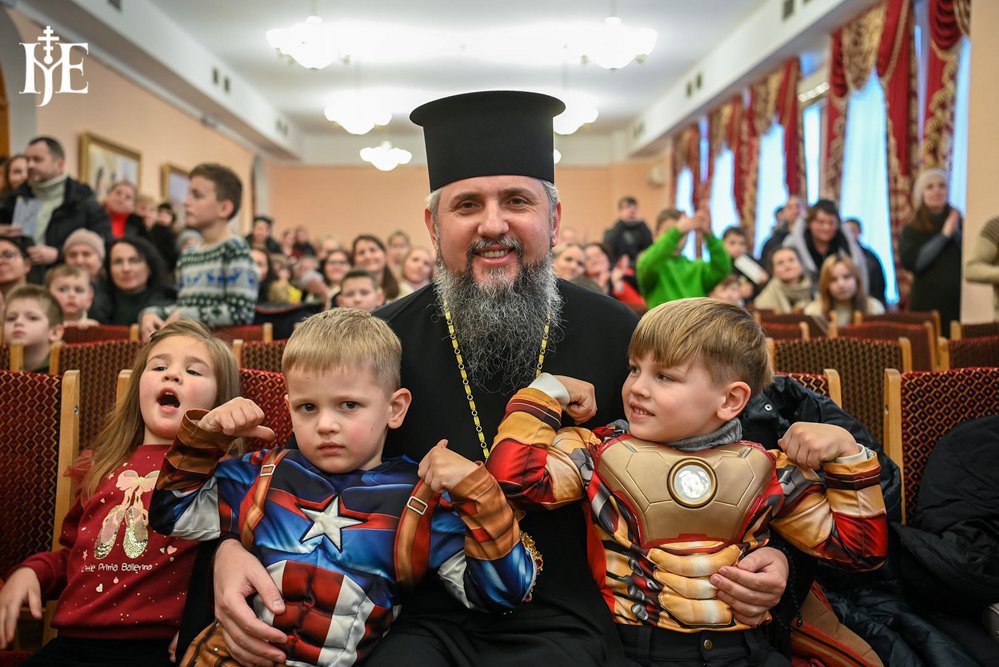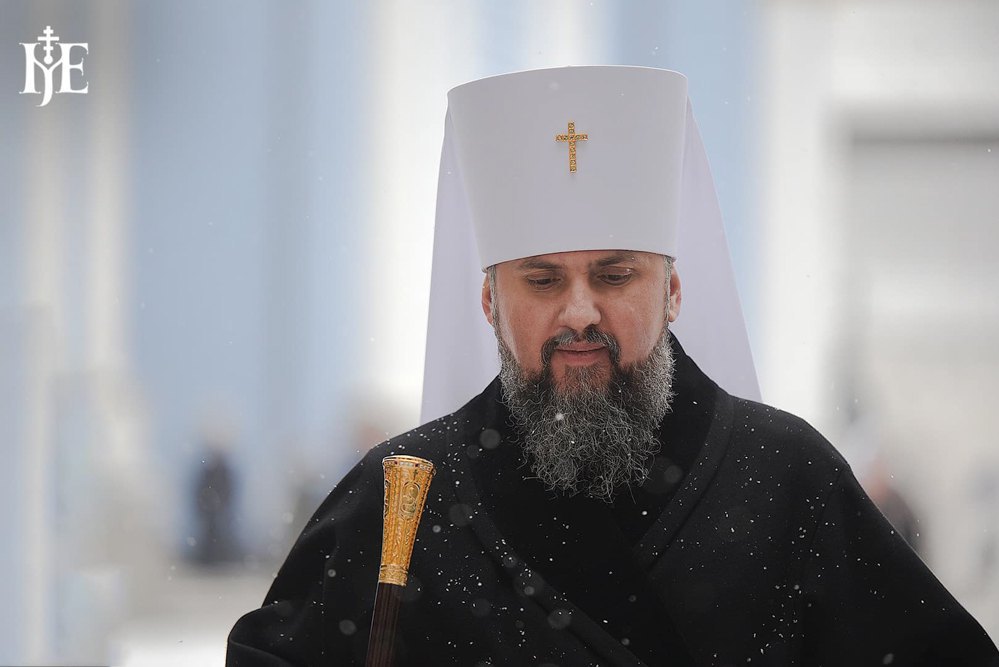
"The ROC openly annexes the dioceses of the UOC-MP, and they are silent. Why? Because they are all together in one church – the ROC"
Let's start with the results of a turbulent year in Ukrainian Orthodoxy. Usually the church is an environment where everything happens very, very slowly, but here the events literally bumped into each other. Until 2014, the Ukrainian Orthodox Church of the Moscow Patriarchate (UOC-MP) was the largest religious organization in Ukraine with more than 12,000 parishes. Now there are fewer than 8,000 of them, while the OCU has more than 8,000. Most of the transitions took place after 24 February. Since there are no official figures in public domain, I would like to ask you: how many parishes does the OCU have now and how is the process developing?
Speaking about the number of religious communities that are now part of the Orthodox Church of Ukraine, you have mentioned the exact figure – it is about 8,000 parishes. After the full-scale invasion, more than 700 parishes have joined the Orthodox Church of Ukraine. That is, in general, if we take the last four years of independence of the OCU, after the Unification Council, about 1,500 religious communities have left the Moscow Patriarchate to join our community. Not just religious communities, but full-fledged churches, that is, communities that own churches and property.
Of course, not every community joined with its priest – there are fewer priests than communities. But recently we have seen a certain tendency that priests have begun to actively support the decisions of their communities. Recently, I received several such priests who at first hesitated – the community made a decision in the summer, they did not approve of the decision of their community, and now they saw that there would be no turning back – they were fed with certain promises to wait for the so-called liberators to come, and therefore there is no need to rush to make a decision. But now it has become obvious to many that Ukraine is going to win, and therefore the priests gradually understand and support the decisions that have already been made by the community.
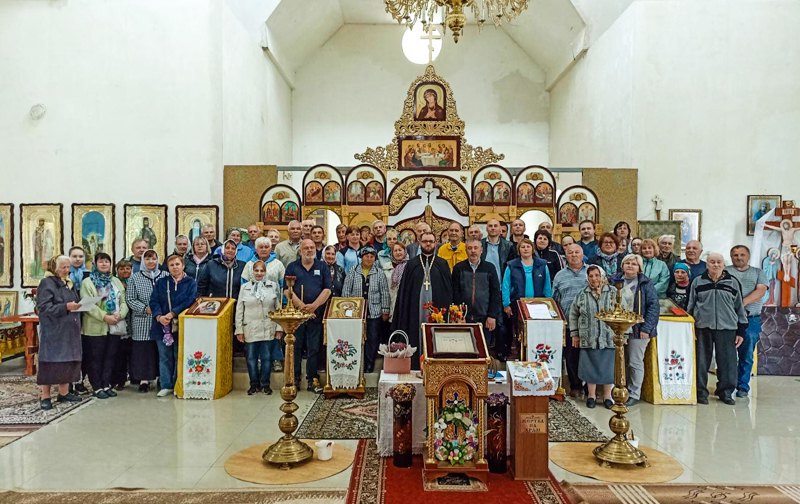
I am convinced that in the future this process will be resumed because in early autumn it slowed down a little. Everyone knows why, you have repeatedly written about this: there were certain obstacles (we are talking about the creation of obstacles to the transition to the OCU by, in particular, the Security Service of Ukraine, for which the deputy head of the main directorate of the Security Service of Ukraine in Kyiv and Kyiv Region, Yuriy Palahnyuk, was dismissed – Koshkina), but these obstacles no longer exist, and communities are free to pass relevant decisions at their assemblies and join our local Orthodox Church of Ukraine.
Regarding the number of communities in the Moscow Patriarchate... It, as you said, has significantly decreased. If we subtract those dioceses that are now under temporary occupation, this also applies to Crimea, Donetsk, Luhansk regions, as we know, Kirill of Moscow openly annexed some dioceses...
Two in Crimea and the one in Rovenky. But they asked to be directly subordinated to the ROC on their own. And the UOC (allegedly not of the MP) did not react to this at all.
It looks strange. They say they have separated, they have no connection with the Russian Orthodox Church, the Russian Orthodox Church openly annexes their dioceses, and they are silent. They are silent because they are an integral part of the Russian Orthodox Church and it does not matter to them where these dioceses are now. Altogether they are part of the single Russian Orthodox Church, thus, as we see, there has been no reaction.
Four dioceses – three in Crimea and one in Luhansk Region – were accepted at the request of the bishops or the meetings they held on the spot under direct subordination to the Moscow Patriarch. And if you count the parishes in the occupied territories, it is about 2,500. If you subtract them from the total number that was not advertised, because in fact they never had 12,000 parishes. Perhaps there were on paper, but if we recall how religious communities were registered during Kuchma's presidency, then there was an order from the authorities to register a religious community in almost every settlement. I saw how this was done in Rivne Region – they just submitted the data and the administration registered the communities, they existed on paper.
Therefore, now they may have even fewer parishes than the Orthodox Church of Ukraine. Gradually, the Russian Orthodox Church in Ukraine will decrease, so the communities that will decide to join the Orthodox Church of Ukraine will make it bigger.
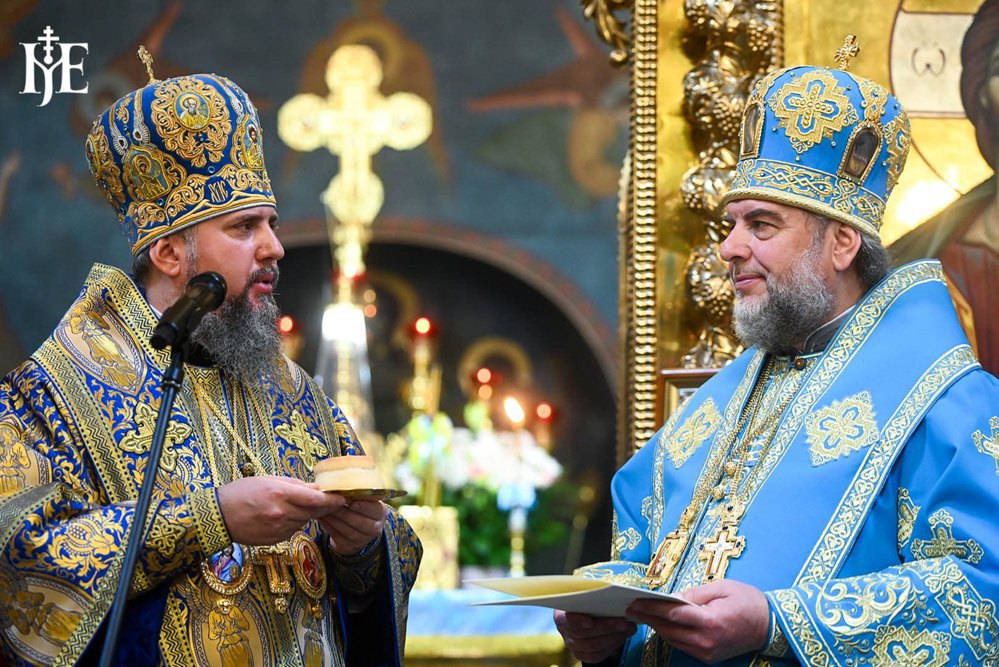
Your Eminence, according to the results of the 27 May 2022 Council in Feofaniya, the UOC declared that it was no longer of the Moscow Patriarchate, removed all references to the ROC from its statute and declared itself an "independent" church. However, there is no such status in canon law. The reference to the missive of Patriarch Alexy in 1990 is pure manipulation, as it refers to broad rights specifically in church administration. And when you ask the UOC-MP why Metropolitan Onufriy did not send out peace letters – and these are mandatory actions if the church changes its status – to the leaders of other local churches, they say: "We will do it after the war." They are waiting to see how it will end. How – from the canonical point of view – can their status be regulated? Should they ask for help from Constantinople, with which they have broken canonical communion? Should they appeal to Moscow with any request? How should it be in principle? Because now they are in the middle of nowhere.
In my opinion, there was a certain meeting in Feofaniya, which wanted to make it look from the outside that they had severed relations with the Russian Orthodox Church, but in fact this did not happen. They only disguised themselves for a certain period, wanting to preserve the situation that was before 24 February. Externally, it was as if they removed from the statute the indication of a clear connection with the Russian Orthodox Church, but in the first paragraph, as you said, there was a reference to the missive of Patriarch Alexy, which was presented to the former Metropolitan of Kyiv Filaret, Patriarch Emeritus Filaret. This letter clearly shows that the so-called UOC is an integral part of the Russian Orthodox Church. But so far they have not officially published this statute.
It looks very strange: if the highest governing body has made a decision that should be implemented locally by clergymen, but the statute has not been published, how can they live according to the document that does not exist? It was published by the state authorities at the request of our layman, who appealed to the State Service to do it. That is, they have no desire to break ties with the Russian Orthodox Church. They only wanted to show to the public that they were severing ties, but in fact, behind this screen there is a direct connection with the Russian Orthodox Church.
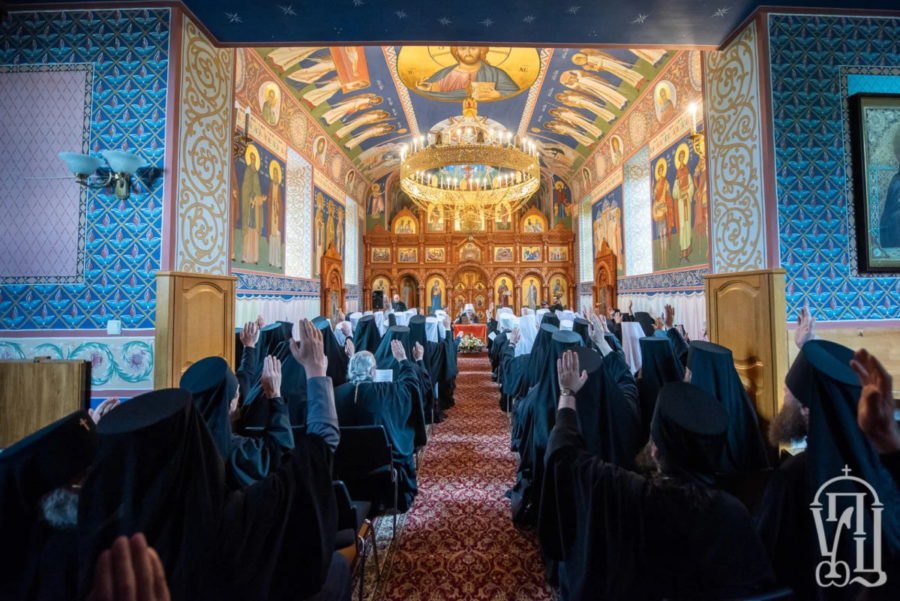
Regarding the regulation of this status, it should be noted that Ukraine already has a recognized Ukrainian Autocephalous Orthodox Church, which was established at the Unification Council four years ago, on 15 December 2018, which took place in the walls of our ancient St. Sophia Cathedral in Kyiv. Therefore, we must now regulate this issue internally. All of them, as you know, received an invitation from the Ecumenical Patriarch to participate in the Unification Council. But they refused and since then automatically lost their canonical status. There is no Metropolitan of Kyiv now, there is Metropolitan Onufriy in Kyiv. Canonically, he is not the Primate of the Ukrainian Orthodox Church, because in Ukraine there is already a recognized Orthodox Church of Ukraine, which has its own head, he is included in the diptychs and commemorated by the Primates of other local Orthodox Churches. That is, they now need to communicate with us because without our participation they will not be able to decide their future. Even talking about peace letters is inappropriate, so Metropolitan Onufriy did not send them. If he even does this, he will follow the path of Patriarch Emeritus Filaret. They have been fighting against him for 30 years, and now they are choosing the path that he has already covered over the past three decades. It looks a little strange.
As we can see, Metropolitan Onufriy is not taking this path, but continues to rely mainly on the pro-Russian, I would say, electorate in its structure because he understands that without it, without the support of pro-Russian believers in the UOC, he has no future. And, of course, he has, as we see, a certain fear of Moscow. He really sees what happened to Metropolitan Filaret, and probably this is a certain obstacle for him in making any appropriate decision. Therefore, his only option is to hold a dialogue on joining the Orthodox Church of Ukraine.
The mentioned missive of Patriarch Alexy II, issued in 1990 to Filaret, the then head of the Kyiv See, is nominal. It was issued in his name, and Filaret believes that when he is gone, this letter will automatically lose its validity. This is a document of canon law, not legal law, so it can be interpreted differently. It seems to me that this is still an exaggeration and the missive was issued to the church he represented at the time. What do you think about this?
I believe that the missive was issued to the church. Since at that time the position of Metropolitan of Kyiv was held by Metropolitan Filaret, his name was written in this missive. But we know that this missive has been transformed and changed over the past decades, and now there is mostly an inaccurate copy because the Moscow Patriarchate once crossed out the name of Metropolitan Filaret from this missive. But the real missive, which Patriarch Alexy handed to Metropolitan Filaret in St. Sophia, contains the name of Metropolitan Filaret.
The Tomos of autocephaly of the Orthodox Church of Ukraine also includes my name as the elected Metropolitan of Kyiv. Of course, this process is launched not for decades, but for centuries, we are all here temporarily, and the Tomos is a historic document for the Orthodox Church of Ukraine. My name is written in connection with the fact that I received it and was at that time elected the current Metropolitan of Kyiv, the Primate of the Orthodox Church of Ukraine. Therefore, of course, that missive is valid and will be valid even if certain figures are absent.
"There is no reaction to obvious crimes against Ukrainian society in the structure of the Moscow Patriarchate"
You have noted that Metropolitan Onufriy fears Moscow. What is the reason behind this? Many people, especially those who are not involved in church matters, are now watching the processes that are taking place in the structures of the UOC-MP – where there are collaborators, holders of Russian passports, outright perverts, excuse me – and they do not understand why the Synod meets but does not condemn anyone. They do not notice these things at all. They do not defrock even those bishops who fled to Russia. Had they reacted appropriately, it would have protected them. It reminds me of Viktor Yanukovych's behaviour during the Maidan. But I am interested in your opinion. Why is Metropolitan Onufriy so afraid of Moscow's influence and does not make decisions that would save them?
It should be noted that Metropolitan Onufriy is a graduate of the Russian school. He completed his studies there, stayed for a long time and held certain positions in the Trinity Lavra of St. Sergius. That is, he is a pupil of the Russian Orthodox Church of the Soviet period. It should also be noted that he is already of age and it is probably very difficult for him to change. He does not understand the demands of society because in Soviet times, as you know, society did not influence the church. And now the church must respond to the demands of society.
There are scoundrels in every organization, including a religious one, which is in earthly conditions. But it depends on the organization how it reacts to the actions of these villains. We have also had different cases over the last four years, but we react very quickly to certain things that happen in the church. If it defames the name of the church, accordingly, we cut short any negative actions. Because these are people, they are tempted, the devil works, evil in the world works, and sin works, so anyone can be tempted. But we must point out that the person understands and repents of it.
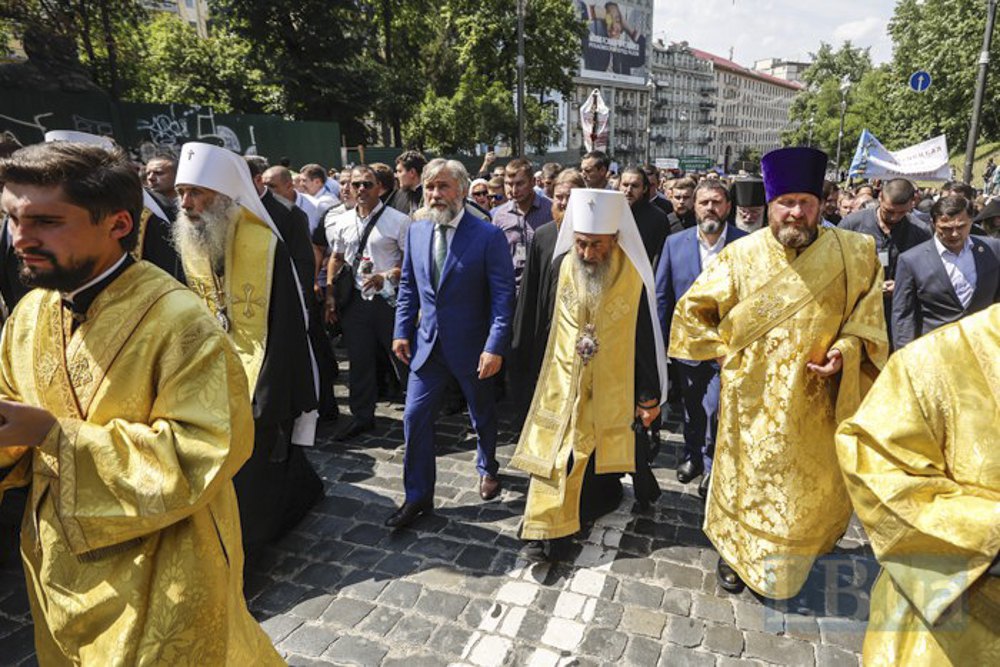
We see that in the structure of the Moscow Patriarchate there is no reaction to the obviously open crimes against Ukrainian society. There are many examples of collaborators who from the first days [of the full-scale invasion] were fire adjusters and threatened people. Recently I held a service, a thanksgiving prayer in the church of the Main Military Hospital of the Interior Ministry. The priest who had officiated in this church was famous from the first day for being a fire adjuster at Hostomel airport. The question arises: how many people died because of him? And he is still at large. Even doctors testify that he threatened them: if you move the temple, expect a missile attack.
And he is still at large? Can you tell me his name? I think the Security Service of Ukraine will be interested.
I do not remember his name and surname. Everything is on the Internet, you can freely find it even with drawings. As experts told me, he was an FSB officer, that is, a person who worked (in the FSB – Koshkina) and had certain skills. Why not punish such open collaborators?
Of course, there are many other things that destroy the authority of the church in general, but we do not see any reaction, any decision on their part. On the contrary, they believe that their priests are national heroes, not collaborators. I do not deny that there are some clergymen who are under occupation, I know them, they are still part of the Moscow Patriarchate, but they are patriots. But there are many, unfortunately, who are still openly working against Ukraine. There are those who were sitting directly (in the Kremlin hall – Koshkina) when Putin announced the annexation of Ukrainian territories and they have not been condemned. They were simply sent to "retire". They fled to Russia – and no reaction. I have been repeatedly asked even by foreigners why this is happening, why Metropolitan Onufriy and his Synod take actions that work against them every time.
Every day we see some precedents that shake Ukrainian society, and there is no reaction to them. In recent months, we have not seen any reaction even to odious Metropolitan Pavlo. Everyone expected that there would be some adequate decision, but we see the opposite. On the contrary, such people who openly worked and are working against Ukraine are being protected. Therefore, the situation looks, to put it mildly, strange on their part.
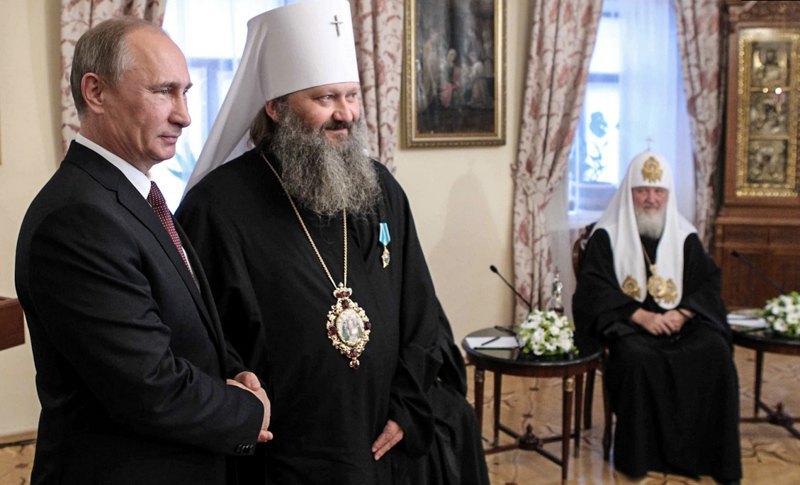
The Lord leads the Ukrainian church to full unity. But we do not object against Ukraine having a certain small structure for those who wish to visit the churches of the Russian Orthodox Church. No objections, we are a democratic country. I am often asked: "Is it possible to make all Orthodox Ukrainians unite in one church?" I say that it is impossible because we live in a democratic country, we have a democratic society, and there are those who do not want to. Everyone can be united only in the Russian Federation because there is no democracy there. We have democracy, so we want everyone to have the right to religion, to have their rights and so on.
Just a few days before the New Year, the Constitutional Court ruled on the need for organisations that have an administration centre in the territory of the aggressor state, the Russian Federation, to indicate this in their name accordingly. The explanation of the Constitutional Court concerns the law of 2018, which obliged the UOC-MP to mark its affiliation with the Russian Orthodox Church in its name. Instead, the UOC-MP shouts that this does not concern it, especially since they seem to have broken canonical communion with the ROC, although we know that they have not. Within four months, the state authorities must conduct an inspection. And if it is established that the current UOC-MP has a connection with the ROC, it will be forced to rename itself somehow.
We have said from the very beginning that the laws should be implemented. But as we know, when it was adopted, 49 pro-Russian MPs led by Novynskyy sent a motion to the Constitutional Court, seeking to declare this law unconstitutional. The Culture Ministry (Department of Religious Affairs) has already clearly identified the organisations that should make these changes and issued a corresponding order, but the infamous District Administrative Court of Kyiv, which has made many interesting decisions during its existence, blocked it.
That is, the law was and is in force now, the Constitutional Court has finally put an end to this issue. The Court confirmed that the law does not violate the Constitution of Ukraine. But so far there is a stopper in the form of the decision of the District Administrative Court of Kyiv (DACK). The DACK itself is dissolved, it is not clear where these cases will be transferred. I think that they will be transferred to another, newly created court, it will unblock the order of the Ministry of Culture, and each community will have to hold a meeting within a certain time and make a decision on renaming. Because many people are now misled: they are told that they are part of the Ukrainian Orthodox Church, but in fact they are part of the Russian Orthodox Church in Ukraine.
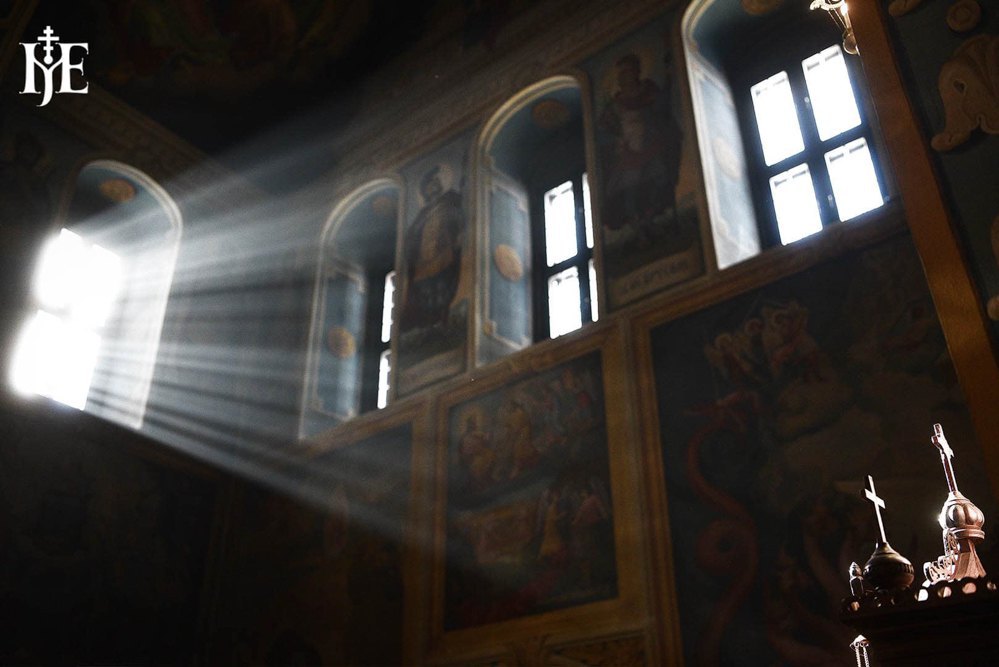
When the question arises for the community to make a decision, to vote: do you remain part of the Russian Orthodox Church, that is, do you accept the name "Russian Orthodox Church in Ukraine", or do you want to be in the Orthodox Church of Ukraine – I think the vast majority of communities will decide to be in the real, recognized, autocephalous Orthodox Church of Ukraine. It is a matter of time. It is a pity that the Constitutional Court had considered this issue for four years, but I think the state will gradually regulate everything and bring it to a logical conclusion.
"I think most communities will not want to be named the Russian Orthodox Church, especially in times of war, and will accordingly decide to join the OCU"
What do you think about the bills to ban the UOC-MP, which are now in parliament? Religious scholars, experts and people in the know are critical. Recently, in an interview with LB.ua, Viktor Yelenskyy, the new head of the State Service for Ethnic Policy and Freedom of Conscience, said that religious organizations, even the White Brotherhood, have never been banned in Ukraine. Such a ban may have the opposite effect and create the image of "suffering for faith." What do you think about this? Is it worth discussing the possible ban on the UOC-MP, given that we are a secular state and the Constitution cannot be changed during the war?
Several draft laws are currently being considered in parliament. None of them will pass the voting. Therefore, as we know, the National Security and Defence Council has instructed the Cabinet of Ministers, and now some MPs are working to consolidate all these draft laws into a single one and make the appropriate decision.
Of course, the church is not a legal entity, as we know, and it is impossible to ban its activities at once – each religious community has its own separate legal status. Everything follows from the previous question about the implementation of the law on renaming. If you want to remain part of the Russian Orthodox Church, you must change your name. If the community makes such a decision, it will implement it accordingly. But I think most communities will not want to be called the Russian Orthodox Church, especially in times of war, and will decide to join the single Orthodox Church of Ukraine.
Now MPs need to approach this wisely, to develop a law that would really work, would not violate the rights and freedoms of citizens. Because this issue does not concern religion. No-one is persecuting anyone. The state cares about security, especially in this difficult time. National security is a priority in times of war. If there is a real threat, and we see that there is a real threat, because the searches have shown that even after several months there are still many things that show that they have worked and are still working for the aggressor, the question arises: what did they do before?
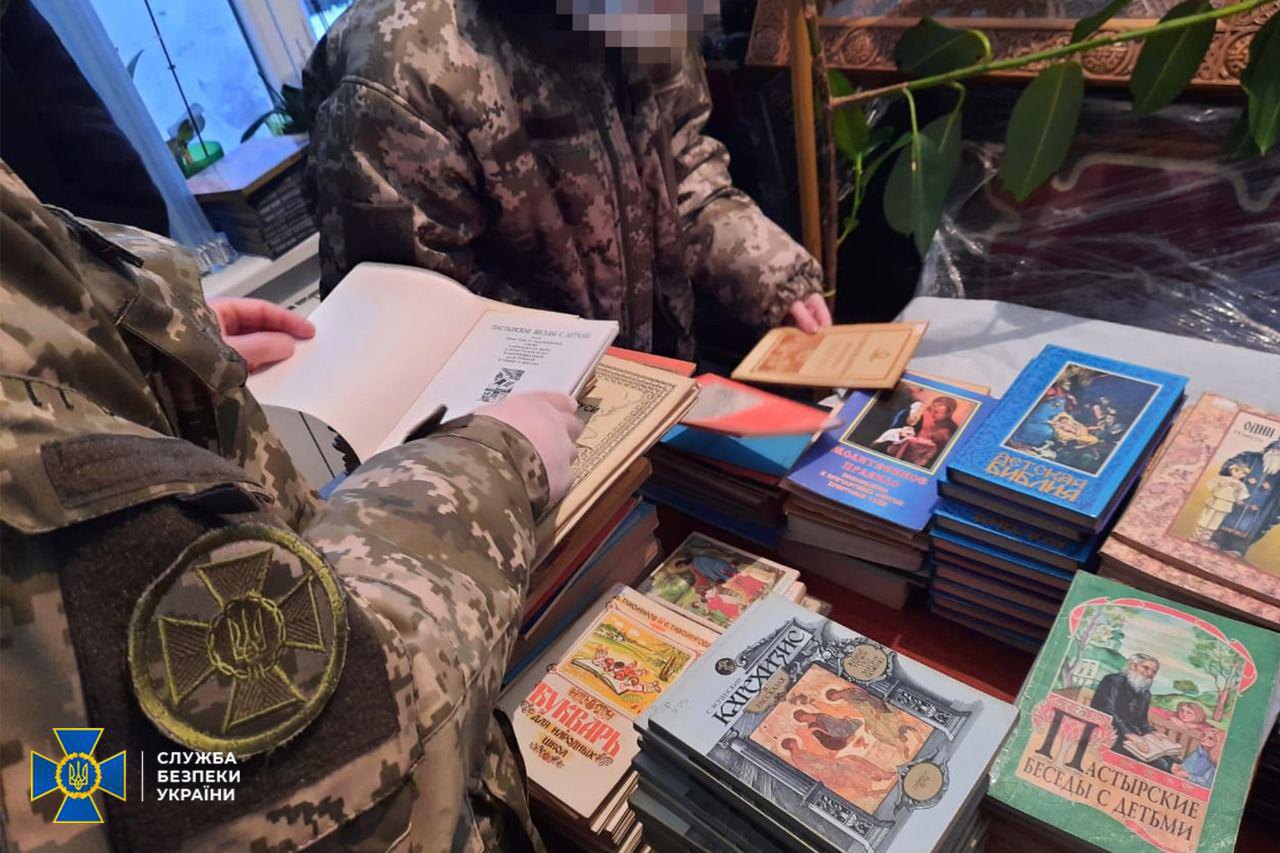
A lot of evidence was destroyed, I am convinced. And what is being found now shows that they are still an integral part of the Russian Orthodox Church and have been openly preaching this pernicious ideology of the "Russian world" for the last decades, which led to this terrible war, so the responsibility, of course, lies with them.
Therefore, the draft law, which is being developed, should be written in a very scrupulous manner and prove that we are a democratic country, we do not prohibit the practice of faith, but we care about our national security.
Do you know who is developing this draft law? Who supervises the working group?
I do not know yet. There is only information that a group will probably be formed after the holidays. It seems that this issue will probably be supervised by the State Service for Religious Affairs.
You have noted that now we can only talk about joining the OCU, not about unification, since Ukraine already has a single local Orthodox Church. How should it be implemented technically? Small parishes simply join the OCU privately now – and that's it, the issue is resolved. What about representatives of the supreme clergy, who often take pro-Russian positions?
Can, for example, President Zelenskyy initiate your meeting with Metropolitan Onufriy, so that you somehow establish contact and discuss their joining? Considering that they do not really want this dialogue. Or, perhaps, representatives of the supreme clergy of the UOC-MP came to you – bypassing Onufriy – with some proposals, initiatives?
It should be noted that the unification process began with the Council, which took place on 15 December 2018. After that, grassroots communities began to join the united Orthodox Church of Ukraine, and this is already the beginning of the unification process.
Of course, the elite opposes and has opposed the process quite intensively for the last four years. They practically do not recognize these transitions. Although, perhaps, some recognize when the community, together with its priest, has made a 100% decision and joined, then there are no arguments to deny the fact. Therefore, the process continues – almost every day in Ukraine in one or another diocese the communities gather for a meeting and make the relevant decision. Therefore, it makes no sense to talk about another Unification Council. The Council took place, the Tomos was issued, the Orthodox Church of Ukraine exists, and its canonical territory is the Ukrainian state.
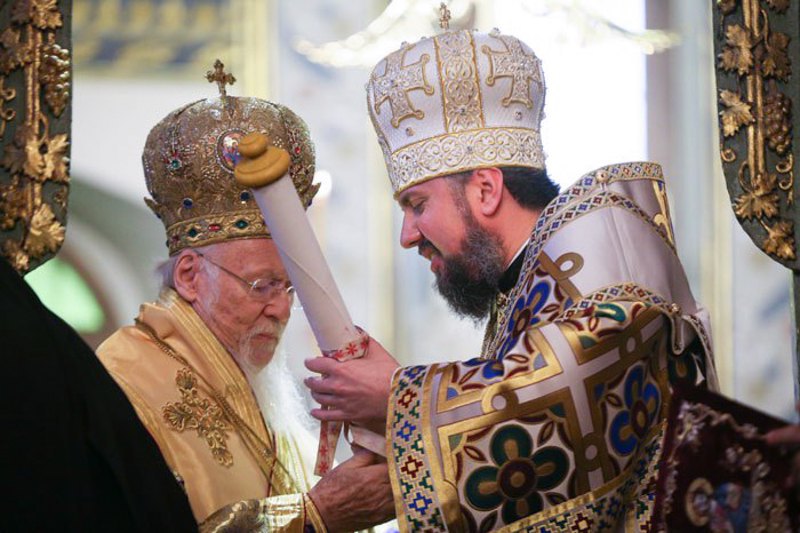
We just tolerate the presence of the Moscow Patriarchate, so to speak, because they have no canonical right to be on our canonical territory. That is, there is a certain canonical anomaly. But, you know, we have repeatedly appealed – boththe Council of Bishops and our synods, and I have repeatedly emphasized that we call for dialogue (with the UOC-MP – Koshkina) without any preconditions. Because if we talk about communication, about dialogue and set preconditions, that is, obstacles, we will never start such a dialogue.
We made calls, and they answered at this meeting in Feofaniya, gave us almost an ultimatum, just like Putin is giving Ukraine now, that we must capitulate, must surrender. They are doing the same to us now. They offer us conditions that we will never agree to because they do not recognise us as clergy, do not recognise that we are a canonical autocephalous Orthodox Church.
We were ready to sit down at the negotiating table without any preconditions. But time is changing, so we already have certain conditions.
We see that the state imposes sanctions on the highest hierarchy of the Moscow Patriarchate in Ukraine, and this already raises questions among many of our hierarchs: "Do we also need to analyse, study the issue, if outright collaborators turn to us?" Suppose we are approached by a hierarch who is under sanctions, we need to study this issue because sentiments in society now are quite negative. If we accept such a hierarch, it will affect the authority of our church. Therefore, we are ready, open to communication because in order to make any decisions, we need to sit down and discuss how to implement them in practice.
We are open and ready to turn the page without any preconditions because there are many clergymen and bishops in the Moscow Patriarchate in Ukraine who are patriots, I do not deny it. But they fear Moscow, that Moscow will punish them. Gradually, the situation is changing because the state began to facilitate this. Until now, they were afraid because there was no facilitation.
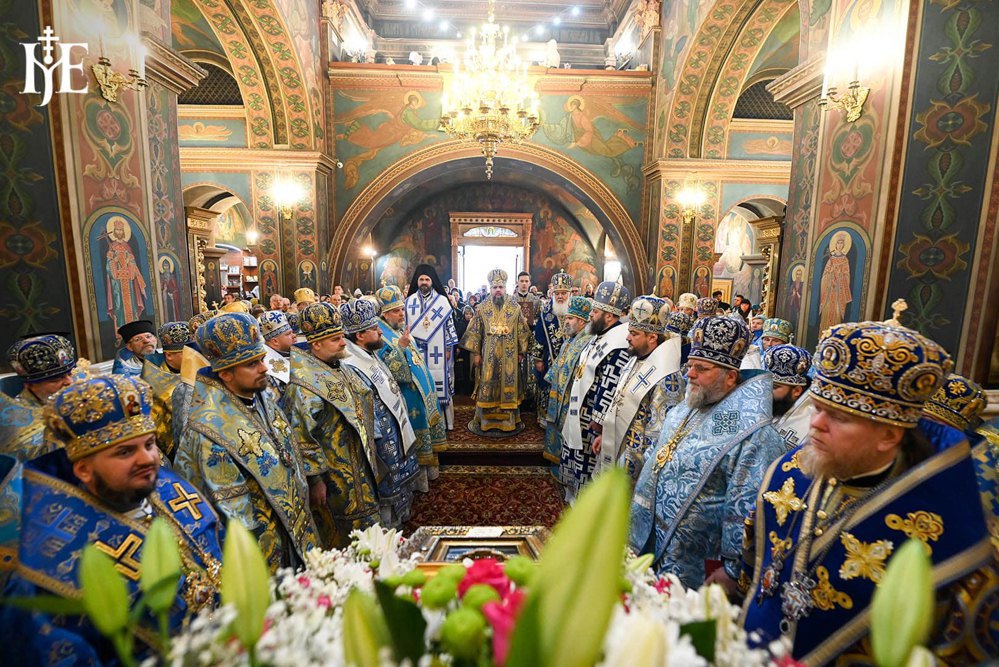
I have heard many proposals and appeals, had many meetings. Everyone would like what? The hierarchs of the Moscow Patriarchate told me: "We are ready to join but if it is painless, if we just change the plate on the diocesan administration and there will be no persecution, no confrontation." We have seen this on the example of Metropolitan Simeon, who joined the Orthodox Church of Ukraine – until now, there are trials that have already reached the Supreme Court of Ukraine: the Moscow Patriarchate wants to take away his cathedral in Vinnytsya and the diocesan administration. This will not happen, of course, but everyone understands that if they make a decision, we will have to fight for it.
And, unfortunately, they do not have enough strength and patience to make the relevant decision. And when the state provides and guarantees them security in case of such a decision, we will see that in the future not only parishes, not only priests, but also bishops with entire dioceses will join. This process is irreversible, it is coming to this, and it will actually be so.
So, did the supreme hierarchs of the UOC-MP contact you privately – bypassing Metropolitan Onufriy and, most importantly, Antoniy Pakanych – with any questions/requests/proposals to discuss the possible transition of their dioceses?
I have already said that there was communication, but they want certain guarantees that they will not be touched. That there will not be a situation similar to the one we saw with Metropolitan Simeon of Vinnytsya. If they keep their diocese whole, they are ready. There are still some priests, most of whom would like 100% of the priests to support the decision to transfer. But I say that there will never be 100% support, if the bishop wishes so, there will be some priests who will not be in favour. They say: "We still need to work, we want at least 90% of the priests to support the bishop, and we are ready to make the relevant decision."
We do not advertise this because it is clear: if they find out, they will be sanctioned and punished. Therefore, we are communicating, conducting a dialogue, and I think that over time it will make it into public domain, when relevant decisions are made on their part.
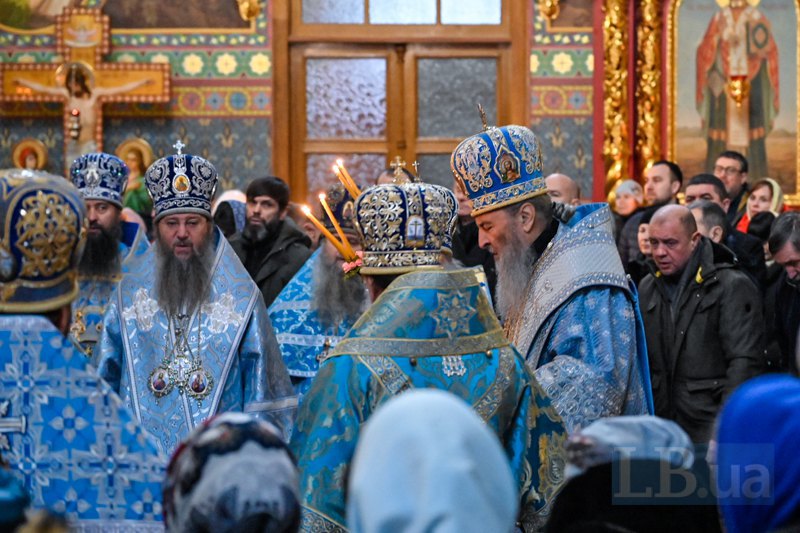
How to avoid a situation when a diocese of the UOC-MP from the area where you have your own good diocese wants to join you and wants to keep this diocese for itself?
And how did we avoid this situation when we united into a single local Orthodox Church? We also had the same titles – both in the Kyiv Patriarchate and the Ukrainian Autocephalous Orthodox Church. This issue will be resolved gradually, but if the bishop of the Moscow Patriarchate makes the relevant decision, he keeps the title, the diocese, priests. I guarantee that no-one will humiliate anyone. On the contrary, they will be certain heroes who made a difficult decision at such a time, supported the unity of Ukrainian Orthodoxy. Therefore, there should be no fear that the priests will lose something because they are scared of being deprived of titles, awards, etc.
Those priests who joined are held in high esteem, they received awards. We accept them, we are open, we are ready to embrace with love those who want to be with us. We must forget what happened in the past. Yes, there were different moments, contradictions, struggles, but for the sake of our common future, for the sake of our unity, we must forget what happened in the past.
If people join us, we are open, ready to help, assist and do everything even better than in the past.
"OCU lays claims to staying in the Kyiv Pechersk Lavra"
Since the beginning of 2023, the Ukrainian Orthodox Church of the Moscow Patriarchate has been deprived of the right to serve in the two main churches of the Upper Lavra – the Holy Dormition and Refectory Cathedrals. The lease term has expired, which the state does not extend.
There were expectations in society that as soon as the UOC-MP was asked to leave, the OCU would immediately enter (the conversation took place before it became known that Metropolitan Epifaniy would serve the Christmas service in the Lavra's Holy Dormition Cathedral – Koshkina). Is it possible that in some time these cathedrals will be fully transferred to the use of the OCU? Has the OCU applied for this? Because we know that recently a monastery of the OCU was registered, which is now formally located in the Theodosius Church, literally across the street from the Lavra.
Yes, the Orthodox Church of Ukraine lays claims to staying in the Kyiv Pechersk Lavra. We have repeatedly stated this, applied to the government in June with a request to provide one of the churches. Then it was not about the Holy Dormition Cathedral or the Refectory Church. We were talking about one of the other churches – the Trinity Gate Church, the All Saints Church. We asked to be present, to pray in Ukrainian, Ukrainian should be heard in Lavra in a difficult time of trials by this terrible war. But everyone said that we should wait until the Moscow Patriarchate's lease for two churches, the main churches of the Upper Lavra, expires.
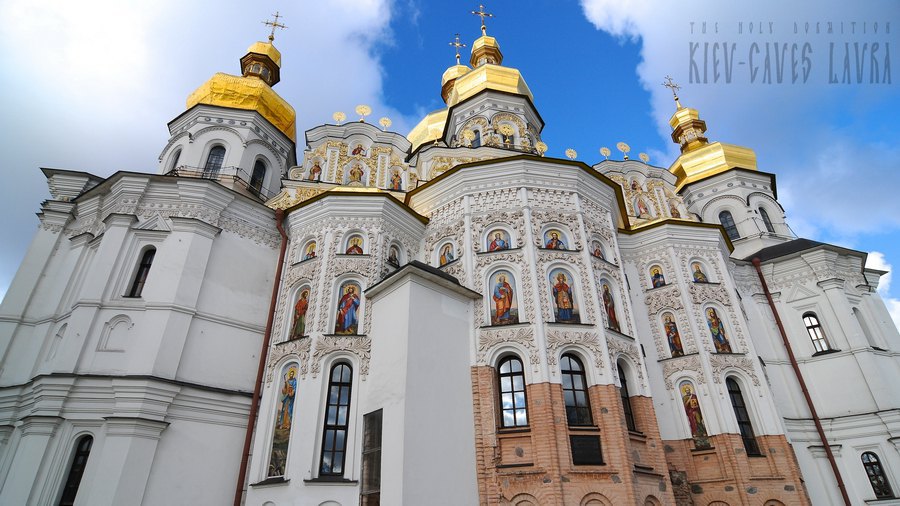
As we see, the agreement ended on 1 January. They left the territory of the Upper Lavra and, naturally, we also want to pray in the churches of the Upper Lavra. Why do we not have this right? We strive for this, we ask and will ask the state that the Orthodox Church of Ukraine should also be present in the upper part of the Kyiv Pechersk Lavra, have the right to use one of the churches or two churches, it will be decided by the state – whether it is the Holy Dormition Cathedral or the Refectory Cathedral of the Upper Lavra.
This decision can be made by the Cabinet of Ministers, right?
Yes, we have applied and will continue to apply. Appropriate checks will be carried out, a commission has been created, so we will wait. We have patience, we have been waiting for decades, because now we have already taken certain legal steps. We have registered the legal entity "Holy Dormition Kyiv Pechersk Lavra - Monastery" at the address of the Theodosius Monastery because it is impossible otherwise. We would like to register at the address of the Upper Lavra, but from a legal point of view it was impossible to do, so the temporary address is the address of the Theodosius Monastery.
Because of this, the State Service had not replied for half a year... Well, it replied, but it was constantly necessary to finalize the documents – that is, the necessary decision was not made on purpose. But the decision was made by the previous head of this State Service: a legal entity was registered, and, accordingly, we want the monastery to develop as part of the Orthodox Church of Ukraine out of those monks who are now part of the monastery of the Moscow Patriarchate.
Do the monks of the Moscow Patriarchate want to join the OCU just to stay in the Lavra, or what?
Many of them are now making up their mind. We know that there are a large number of monks who have pro-Ukrainian views and who, if we are given a cathedral in the upper part of the monastery, are ready to join and contribute to the creation of our monastery as part of the Orthodox Church of Ukraine.
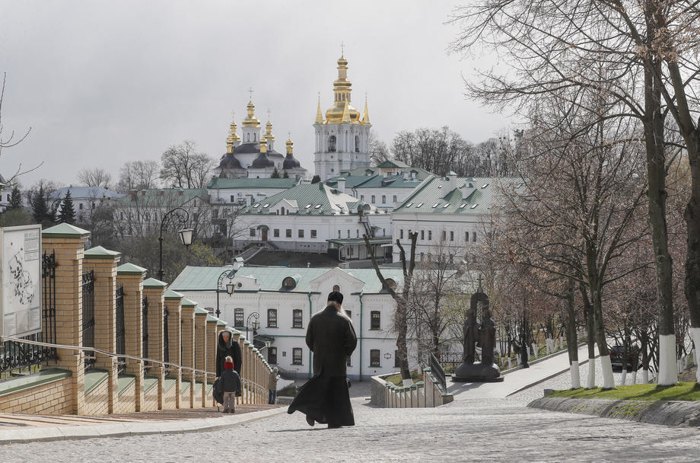
And what about the Lower Lavra? As far as I remember, during the government of Mykola Azarov it was leased out for free and indefinite use. Waiting until the lease expires is not an option.
This is a process that takes place gradually. Currently, we are talking about one of the churches of the Upper Lavra. From the very beginning, I said that we do not want confrontation, we do not want enmity, bloodshed. We want to do everything right, wisely and peacefully. Now we are paving this way diplomatically, gradually, correctly. We have registered our legal entity; there will be monks who will join our monastery. These are those who stayed and treaded in the Pechersk Monastery will continue to do so but in the monastery as part of the Orthodox Church of Ukraine; and this process is irreversible. I am convinced that over time, the majority of the brethren will join this process, and the issue of the Lower Lavra will also be resolved directly by the brethren of this monastery.
This is reminiscent of the situation with the Esphigmenou Monastery on Mount Athos, which has for years been divided by religious communities that are not very friendly to each other.
There are many precedents in the history of the church where different organisations or people of different religious views can coexist at the beginning. This is happening now in the case of the Kyiv Pechersk Lavra, where two monasteries will exist in parallel – one as part of the Orthodox Church of Ukraine, the other as part of the Moscow Patriarchate. This is temporary. Gradually, only one monastery will remain.
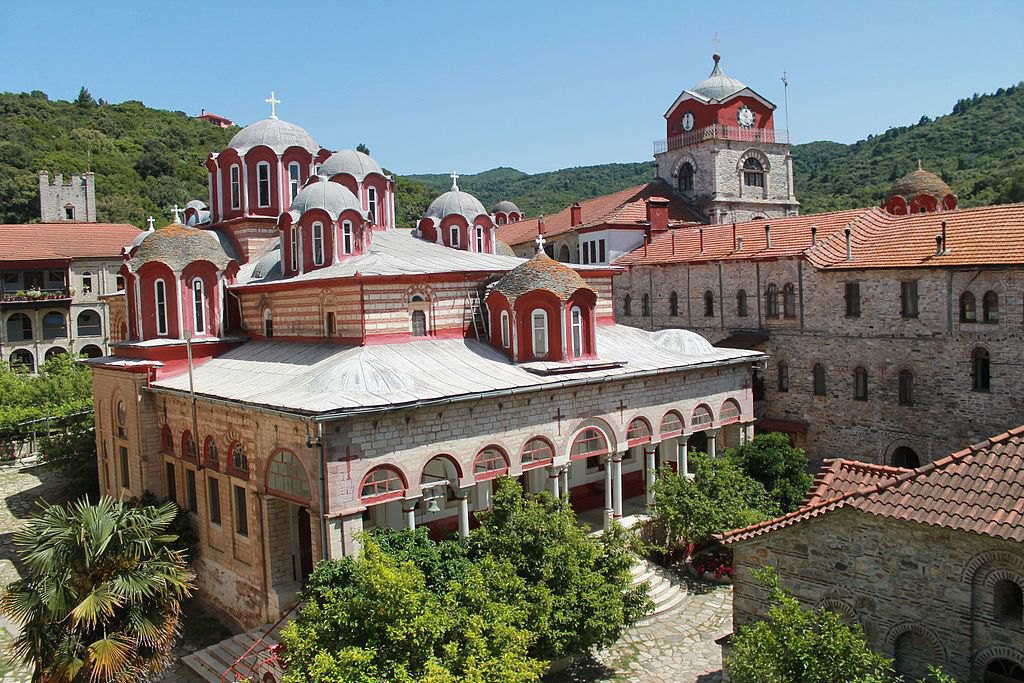
When your monastery was not registered for half a year, you were accused that the Lavra is a big "machine" that needs to be serviced. And Olena Bohdan said about this – "there are a maximum of 50 monks of the OCU" in all of Kyiv. Like, this is not a question of saying no to the OCU, just these 50 monks will not be able to pull the Lavra physically. What do you say to this?
We are saying that we want this monastery to develop further out of the monks who are now treading there. Not to impose others, but to develop those who are direct monks of this monastery, who will decide to change jurisdiction. There are such monks already, and gradually the monastery of the Orthodox Church of Ukraine will develop on their basis. It is best that those monks who have been there for a long time, have spiritual experience, make the appropriate decision to join our Orthodox Church of Ukraine and continue to perform services on the territory of the Kyiv Pechersk Lavra.
The process of transition of monasteries and monastic brethren is more complicated than the process of transition of parishes. Can monks transfer one by one? Not collectively?
We are not talking about the transition of a legal entity. It is difficult to transfer because the monastery is founded by the Synod of the respective church. And we are talking about the fact that the Orthodox Church has a registered monastery, a legal entity, and the brethren simply join. This is an absolutely normal phenomenon.
Are they just joining out of goodwill?
Yes, they are. They make decisions, write applications, and we accept them into our newly formed monastery. They continue to stay in the monastery and fulfil their obedience.
Is there at least one example when this has already happened? Someone from the Lower Lavra, from Moscow monks?
Not officially yet. There are such people, but we must not expose them, because they will be punished and kicked out.
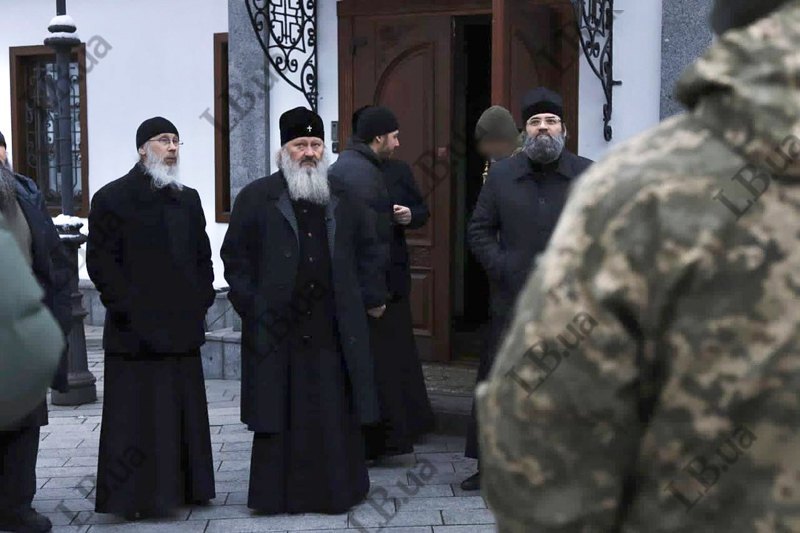
You understand that as long as the abbot of the Lavra is Pavlo (Lebid), he will keep the brethren in his clutches.
Up to a certain time.
So how many monks of the OCU are ready to become residents of the OCU monastery in the Lavra?
We have not conducted a survey yet, but if there is a need, we will find the appropriate number of monks. I mean there is already an appropriate number of those who want to join, and it is on the basis of those who will join that we will develop the monastery of the Orthodox Church of Ukraine on the territory of the Kyiv Pechersk Lavra.
When will it happen approximately?
So far we have no premises. Where should we physically place them now? There are those willing, but we need to have a lease agreement for the use of not only the churches but also the corresponding facilities, because where will they live, eat? There are certain living conditions, without which the monastery cannot exist. Therefore, this is a question for the future.
So when will it be?
It depends on the government. When the government makes the appropriate decision, then we will talk specifically about the development, the number of monks who will join, how we will develop monastic life in this monastery.
According to the registration documents, you are the head of this monastery.
The Orthodox Church of Ukraine, yes. The founder is the Orthodox Church of Ukraine, and the head is the Primate. And then the abbot, the manager, the direct manager will be elected, who will take care of the life of this monastery.
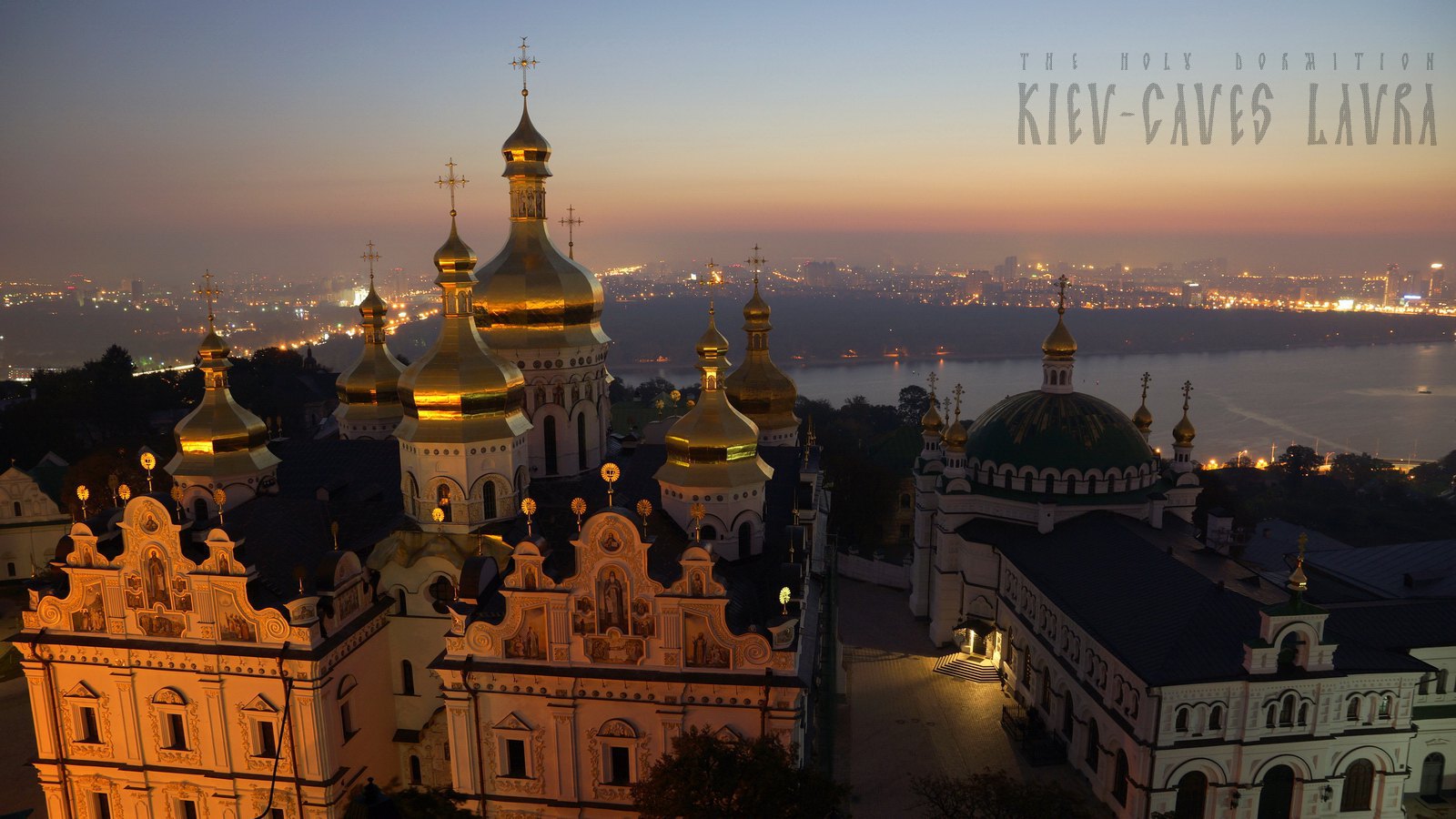
Are there any candidates already?
There will be candidates when we get certain premises. It is too early to say now. It would be good if the brethren who will join the monastery would choose the abbot of this monastery on their own, as is a good tradition in monasteries.
"It makes no sense to say that Svyatohirsk is a lavra. It is one of the monasteries of the Moscow Patriarchate in Ukraine"
I cannot but ask you about other lavras. For example, Pochayiv, where the lease agreement is until 2052. Svyatohirsk in Donetsk Region, which is now actually in the gray zone. What to do with them?
Two lavras are relevant for us: Kyiv Pechersk and Pochayiv.
Why only two?
When was the Svyatohirsk Lavra granted the status of a monastery?
Recently. In 2004.
To please former President Yanukovych.
Now it makes no sense to say that it is a monastery. This is one of the monasteries of the Moscow Patriarchate in Ukraine. Yes, it has the status of a monastery, but now we are talking about two main historical monasteries – Kyiv Pechersk and Pochayiv.
We discussed the future of the Kyiv Pechersk Lavra. I am convinced that the Lord leads us to the point when this issue will be resolved voluntarily, calmly. That is, this monastery will eventually join the Orthodox Church of Ukraine in full, perhaps not in full, but by the majority. Then the question of the Pochayiv Lavra will arise. This is also an irreversible process. It is difficult to predict now.
But if we recall the previous conversations with you three years ago, you always asked the question, what will happen to the lavras? And I said: "Patience, patience, patience." And now we already see that we are close to solving this issue.
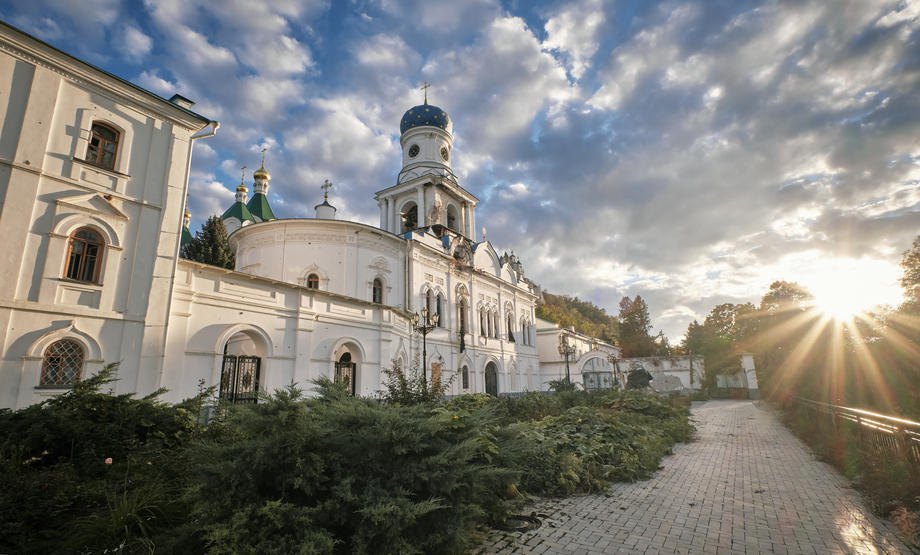
I leave everything to the will of God. From the very beginning I said: if it is God's will, everything will work out in the best way. That is, the Lord, as we see, is leading the Ukrainian church to unity, and the Lord will lead to the point when all those who identify themselves as Ukrainians, want to live in Ukraine, serve God and the interests of the Ukrainian people, will certainly join in time. The Lord will create appropriate conditions that may be difficult to predict and understand now, but we see that in recent months everything has been so dynamic and fast that no one could even predict it last year.
I am convinced that the Lavras will belong to the unified Orthodox Church of Ukraine in the future. The main thing is that this process should be peaceful, voluntary and calm. Then there will be God's blessing and love will reign among us. But we need to be patient. Not everything at once, because many people come to me and say: "We need to do something, be proactive." And I say: "We act, pray and ask God for help, God will help us, and this issue will be resolved."
"Many priests went to Europe for Christmas to hold services for our refugees"
This part of our conversation will concern the OCU's internal affairs. In particular, the organisation of ministry abroad. According to the Tomos, the Orthodox Church of Ukraine cannot have its parishes outside Ukraine. But a lot of refugees – more than 5 million – are scattered around the world, and not everywhere there is access to the churches of the Patriarchate of Constantinople. How is this issue resolved?
In the summer, we recorded an interview with the exarch of the Patriarchate of Constantinople in Ukraine, Mykhaylo Komanskyy (he serves in St. Andrew's Church), and, according to him, the initiative on this issue "should come from St. Michael's [Cathedral]." That is, from you.
A lot has been done during this time. Of course, we have no right, according to the Tomos, to open parishes outside Ukraine, but we have found a solution. With the consent of the Ecumenical Patriarch, we have established a chaplaincy mission, and many priests went to Europe for Christmas to hold services for our refugees. This all happens with the consent of the diocesan bishops of the Patriarchate of Constantinople on the spot. That is, we make arrangements, we are provided with churches where we officiate, and during this time we have satisfied almost all the requests that came to us from Ukrainians who are now temporarily abroad. Of course, we cannot solve everything, but we do our best, and during this time a lot of urgent issues have already been resolved.
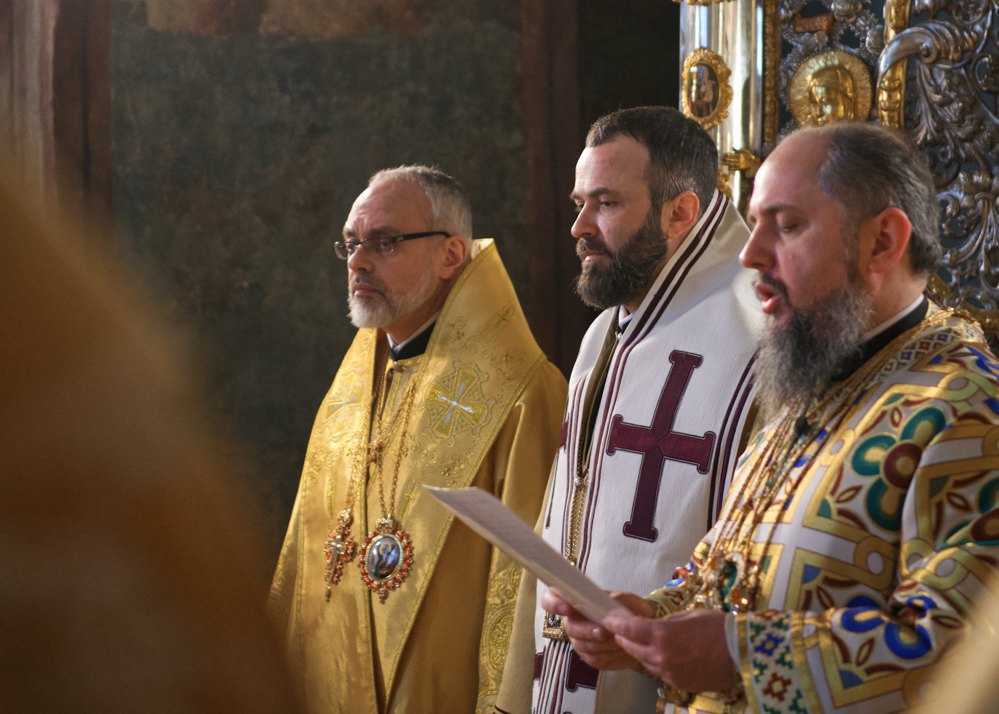
The question that the faithful of the OCU, who are abroad and do not always have access to our priests or to the priests of the Patriarchate of Constantinople, have asked me to raise is about the possibility of communion in Catholic churches, if the rector of a Catholic church offers it. We know that, according to the rules of the Catholic Church, in emergency cases, for example, when a person is dying or there is war in the country and there is no priest nearby, a Catholic priest has the right to give communion, of course, with the consent of the person. Our faithful have doubts whether this is really possible. Would you clarify this issue?
We have no shared communion between the Orthodox and Catholic churches. I am talking not only about the Ukrainian Orthodox Church, but in general. We have no shared communion. That is, we do not take communion with Catholics, Catholics do not take communion with us. We cannot change the tradition that has existed until now. It does not depend solely on me or on the Ukrainian Orthodox Church, it depends on the decision of the fullness of the Orthodox Church.
In the Orthodox tradition, there is no such thing that Orthodox Christians take communion with Catholics. We have the right to use churches that are provided to us as buildings, and this happens very often in Europe. Our communities rent Catholic churches and worship in them, but there is no communion.
Yes, yes, it is all clear. But we are talking about emergency cases.
If there are emergency cases, even a secular person can baptize another person before death. Perhaps, their rules, canons have such a provision.
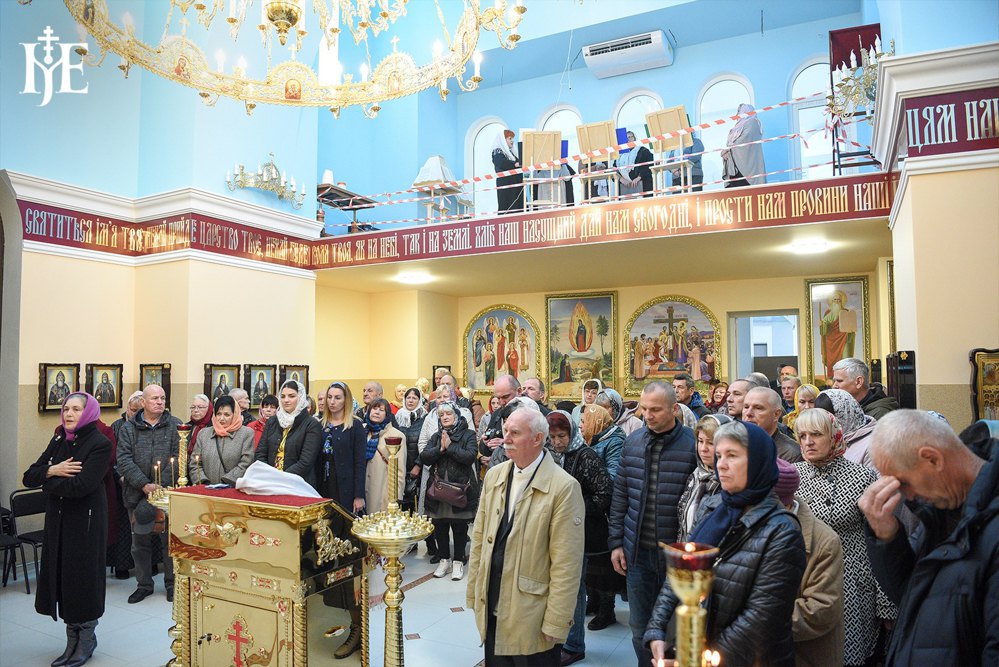
The next question is from my colleague Oleg Bazar: why are there many typically Russian saints in the church calendar of the OCU - Alexander Nevsky, Basil the Blessed, Ksenia of St. Petersburg, for example? How to deal with this? Should they be "vetted" because they are Russian saints?
If you look at our calendar, which is printed as the official publication of the Orthodox Church of Ukraine, there are practically no such saints who are purely Russian. Although it is difficult to split hairs. Each local Orthodox Church has its own saints, and we, as the Ukrainian Church, have our Ukrainian saints whom we especially venerate. Regarding some of the revered saints you mentioned: Alexander Nevsky, Ksenia of St. Petersburg... Initially, we did not include them in the calendar, but we received many inquiries from our faithful about when they should celebrate the day of the angel because they have a Russian saint as their patron saint. So we had to keep such well-known revered saints, although we know what role they sometimes played in history.
Alexander Nevsky – yes. This does not concern Ksenia of St. Petersburg, she was feeble-minded, for Christ's sake, a fool.
Yes. He is even listed as Alexander, but not Nevsky, but Novgorodsky. And so, knowing the history, we left it as a temporary phenomenon in connection with the request of our faithful.
We have reviewed the entire calendar, it was approved by our calendar commission, synod, council of bishops, so there are very few saints in our calendar that raise questions. But we left some of them in connection, I will admit, with the requests.
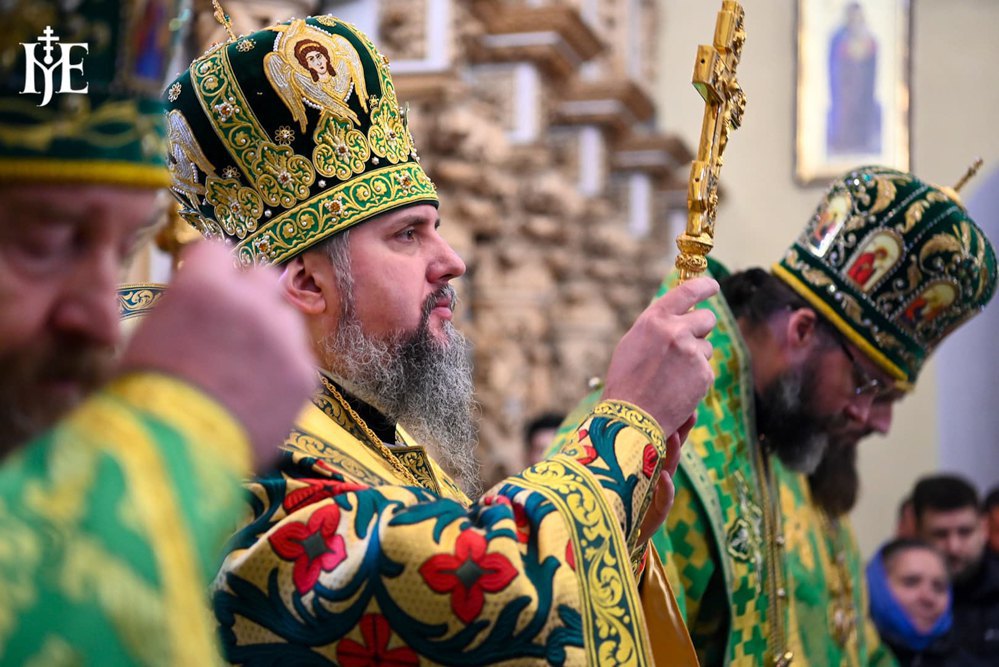
Let's take my case. I was baptised in honour of Ksenia of St. Petersburg in 1990. She is celebrated on 6 February. Yes, there is Ksenia of Milas, for example. But how can I change what happened during my baptism more than 30 years ago?
We are not talking about baptism. We can talk about changing this or that saint. If we take Ksenia, there are other Ksenia in whose honour we can change the date of celebration. You address your prayers to a certain saint or saints with a request for protection, help, etc. And it changes, because it often happens even in the case of priests – students come who study at the academy, but have names that are not in the church calendar, for example, Ruslan. They change this name to Roman or similar and celebrate the day of the patron saint, choosing one or another saint. There is a change, there is no problem with it.
But if you have a spiritual need to pray to holy St. Ksenia of St. Petersburg, no one forbids it, all are saints in heaven. If there is such a need, we do not object. Historically, we are trying to clean up everything Russian, but this does not apply to the saints. It so happened in history that there was a certain period of time when we were united, we were in this spiritual occupation, and it takes time to gradually move away from this Russian tradition, but it cannot be done immediately, because people get used to it. It is necessary to change the generation, and I think everything will be fine in the future.
That is, if you want to move from St. Ksenia of St. Petersburg to another St. Ksenia, just ask your priest's blessing, and that's it?
Yes.
It is difficult to suspect me of love for Muscovites and the Russian Orthodox Church, but this takes time to process. Still, 30 years cannot be crossed out so easily. Plus, Ksenia is a very powerful and kind saint, I sincerely love her. She is a historical character and definitely did nothing wrong. Well, she was born and lived in St. Petersburg – it happens. I am not sure that saints can and should be vetted. Unless we are talking about some obscure Moscow "new martyrs", of course.
I say: the issue of generational change.
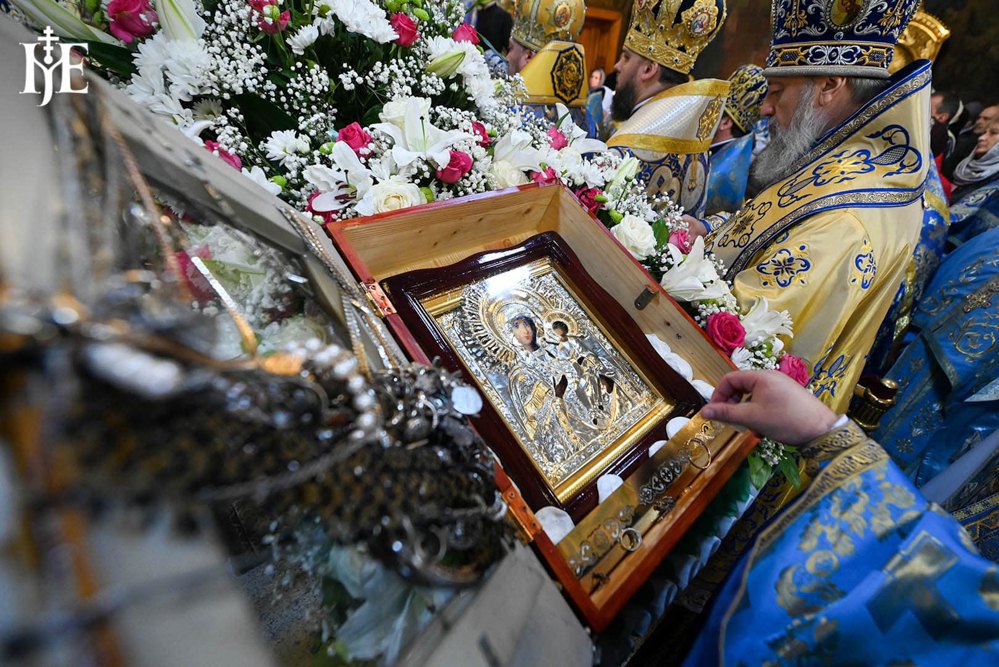
"There will be no single Russian Orthodox Church, there will be pieces of this Church"
Let's talk about the future of the Russian Orthodox Church globally. The ROC has become the basis of the "Russian world" ideology. In a recent historic speech in Abu Dhabi, Ecumenical Patriarch Bartholomew, albeit indirectly, called the "Russian world" a heresy. The Russian Orthodox Church and the higher clergy today, unfortunately, are very far from the church itself, from religion – they have become part of the Russian fascist state.
Experts say that after Ukraine's victory in the war Russia will be divided into several parts. And it seems to me that the same fate awaits the ROC. It will be – let's put it mildly – profoundly transformed. We see what is happening in Ukraine, in Latvia the LOC has walked out of the ROC subordination, and, according to my information, the Lithuanian authorities are negotiating with Constantinople to grant it the Tomos. This is reminiscent of the collapse of the Soviet Union, which began with a "parade of independence" in the republics.
It is difficult to predict now. We can only philosophize, but gradually we see that a certain future of the Russian Orthodox Church is outlined. Not the one they wanted... They wanted to be the first in the Orthodox world and have been doing everything for that. They ordained a large number of bishops, thought that the entire episcopate would participate in the Pan-Orthodox Council in Crete in 2016. But it was determined that only a specific number from a particular church or state representatives would participate. Then they decided not to go and also tempted several other local Orthodox churches not to participate in this Council, which is important for the Orthodox Church as a whole. This desire to be the first ruined them.
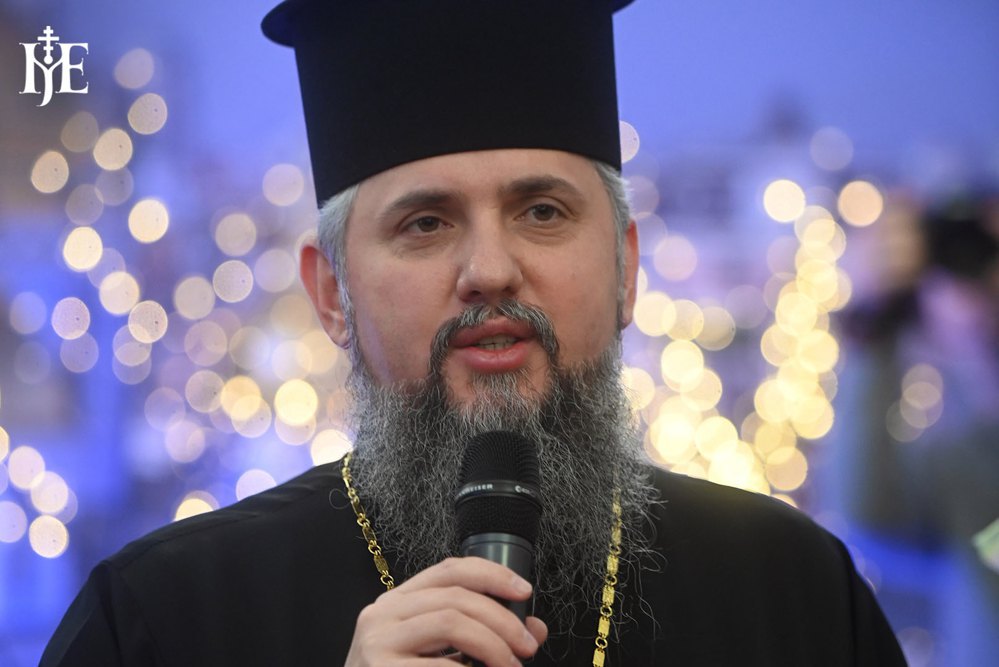
The pernicious ideology of the "Russian world" must be condemned. And we appealed, as you know, to the Ecumenical Patriarch, outlined our position on the condemnation of the ideology of the "Russian world" and Patriarch Kirill, because he is one of the co-creators of this pernicious ideology. At first, everyone was quite critical of the fact that the Orthodox Church of Ukraine appeals to the Ecumenical Patriarch. And now we see that they are gradually listening to us. Because the Patriarch of Alexandria, you know, condemned this ideology and the invasion of the territory of the Patriarchate of Alexandria. Now the Ecumenical Patriarch has supported it. I think that in the future we will also hear some interesting things and certain decisions. Other local churches will join this, I think that the Greek, Cypriot churches, because a new primate was elected in Cyprus, who is also a supporter of the Orthodox Church of Ukraine. Therefore, in the future, of course, after our victory, the Russian Federation will fall apart, and, accordingly, this will also affect the unity of the Russian Orthodox Church.
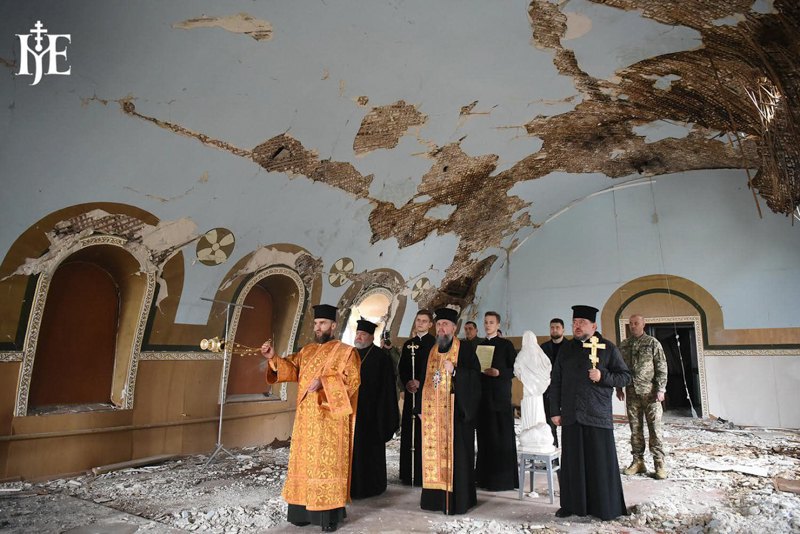
There will be no single Russian Orthodox Church, there will be pieces of this church. There will remain the Russian Orthodox Church, which will not have a decisive influence on Orthodoxy in general. They have been striving for this for a long time, but they have not achieved it and will fail, because historically the Patriarchate of Constantinople is the first in Ecumenical Orthodoxy. And it is inappropriate to change what has developed historically over thousands of years.
The Russian Church considers itself to be the largest church in Orthodoxy and especially during the last years of Kirill Gundyaev's leadership has multiplied the number of bishops. In total, they now have more than 400 bishops, including Ukraine, which is more than all other local Orthodox churches combined. Just to show that they are the largest church and claim primacy. But quantity does not always determine quality and primacy. Historically, there is such an order in Orthodoxy, and no-one can change it, although there was such a desire, there were attempts, there were bribes, they worked intensively in other churches. The state allocated them a huge resource, their department of foreign relations is practically a part of the FSB, which works through the church and influences not only on the church issue, but also other important issues on different continents in different countries.
We do not seek to claim anything similar to the Russian Orthodox Church. We want to be equal among other local Orthodox churches, we want to live in the European community, to build a decent democratic future, and it is in our hands. We will complete it and will certainly succeed. And the enemies who sought our destruction will be defeated.
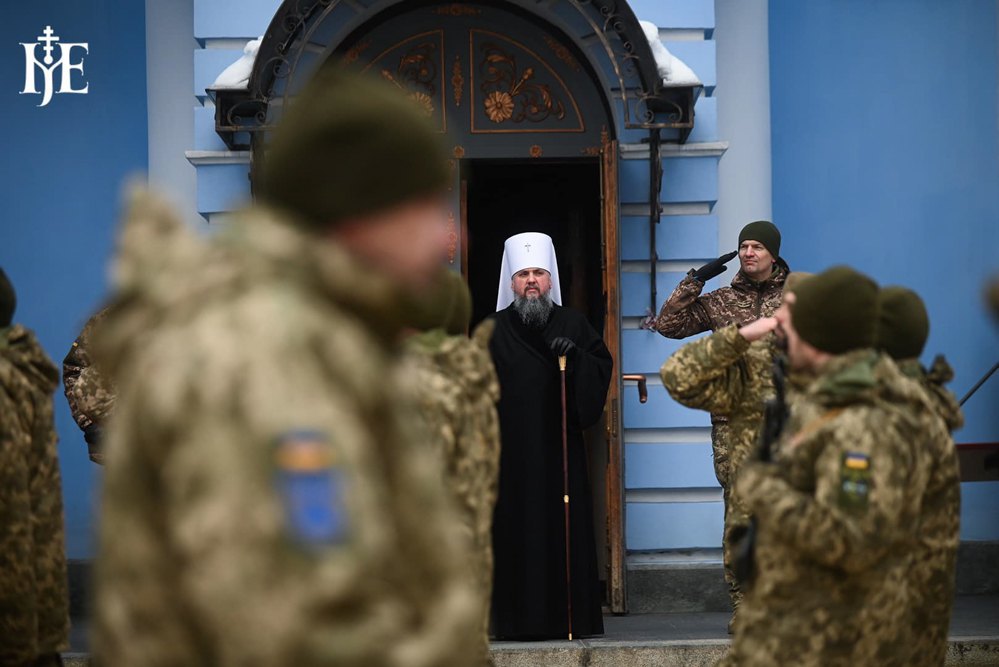
In conclusion, I ask you to wish LB.ua readers and all Ukrainians a Merry Christmas and support them in this difficult time.
Christ is born! Dear brothers and sisters! I sincerely congratulate you all on the great holiday of Christmas! We celebrate this holiday in difficult conditions, in the conditions of war. But it inspires us to continue the struggle. Because we celebrate the coming into the world of the promised Messiah, our saviour, who came to complete the salvation of each of us.
Now we are passing these tests. The tests of war, which we will pass with dignity and become even more spiritually strong. After all, we see that the Lord helps and assists us, because, according to human standards, we would no longer exist. But we are strong, unbreakable, the truth is on our side, and, accordingly, the Lord helps us in this.
The war will end, it will end with our victory, because we feel the presence of God in a special way during these days, Christmas days. We feel this invisible touch of divine grace, which inspires us to continue on this path, the path of Truth. It is difficult, thorny, hard, but we can cover it if God is with us.
These days we sing "God is with us". If God is with us, who is against us? Of course, we see suffering, we see hardships, and God willing, in the coming 2023, everyone will return to their homes. For the great Victory to come, for this year to be a victorious year for each of us, for us to build our common future together, having ended the war with victory. Therefore, may the Lord bless each of us, give us strength, patience, health to continue the fight and do everything in our power to make this victory come true. Christ is born! Let us glorify Him!
